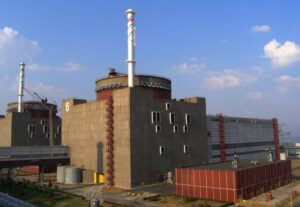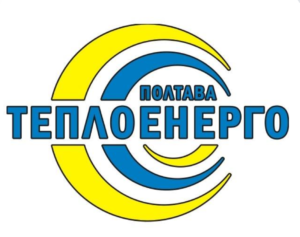
Important repair work has begun on power lines near the Russian-occupied Zaporizhzhia NPP following another local ceasefire brokered by the IAEA, the agency said in a post on social media on Sunday.
“Grossi thanks both sides for agreeing to this new temporary ‘window of silence’ to restore power transmission between the ZNPP and Zaporizhzhia Thermal Power Plant distribution stations, which will help strengthen nuclear safety,” the agency wrote.
It is noted that the IAEA team is monitoring the repair work, which is expected to take several days.
Since the start of the Russian occupation on March 4, 2022, the ZNPP has repeatedly experienced complete and partial blackouts due to the loss of all power lines (it receives electricity from the Ukrainian power grid), with the launch of emergency diesel generators and safety systems, the failure of which could lead to an emergency situation.
According to the IAEA, before the war, the ZNPP had 10 power lines — six at 750 kV and four at 330 kV. The largest nuclear power plant in Europe, which has six 1 GW units, has not been producing electricity since September 11, 2022, following the occupation.
The issue of the ZNPP is one of the problematic ones in the negotiations on the possibility of a peace agreement between Ukraine and Russia, mediated by the US. According to Ukrainian President Volodymyr Zelenskyy, Washington is proposing that the plant in the currently occupied city of Enerhodar in the Zaporizhzhia region be jointly managed by the US, Ukraine, and Russia in a 33%:33%:33% split, while Ukraine is proposing that the plant be operated by a joint venture consisting of 50:50%
IAEA, POWER LINE, REPAIR, truce, ZNPP

Poltava Regional Municipal Heating Utility Poltavateploenergo has announced a tender for compulsory motor third-party liability insurance for 88 vehicles, according to the Prozorro electronic public procurement system.
The expected purchase price is UAH 501,533 thousand.
The deadline for submitting tender documents is January 2.
compulsory motor third-party liability insurance, INSURANCE, Полтаватеплоенерго

Weather conditions may complicate the work of energy, construction, and utility companies, as well as transportation on Monday, December 29, according to the Ukrainian Hydrometeorological Center.
“On December 29, there will be icy roads, on the right bank, except for Zakarpattia, wind gusts of 15-20 m/s, blizzard (level I danger, yellow),” the report says.
blizzard, FORECAST, icy roads, Ukrainian Hydrometeorological Center

According to Serbian Economist, China’s CCSC Technology International Holdings Limited has announced that construction of a cable factory and logistics center in the Serbian municipality of Merosina is scheduled to begin in January 2026.
The company had previously expected work to start in November 2025, but has postponed the deadline. The new schedule was announced during the presentation of financial results for the first half of fiscal year 2026, which ended on September 30, 2025.
As noted in the announcement, the project in Merosina is scheduled for completion at the end of 2026. Once completed, the facility is expected to become the company’s logistics and manufacturing hub for its European operations.
The investment has been discussed with local authorities before: it was reported that the Chinese partners’ enterprise in Merosina could provide about 200 jobs.
CCSC specializes in the production of cables, connectors, and cable harnesses, which are used, in particular, in the automotive industry, robotics, and medical equipment.

The Ukrainian Red Cross (URC) has set up heating centers in settlements in the Kyiv region.
“After another massive Russian attack on Kyiv and the Kyiv region, many people were left without electricity, water, and heat. In order to support the population in the absence of basic utilities, the Ukrainian Red Cross has set up heating points in settlements in the Kyiv region,” the UKR reported on Facebook on Sunday.
Two mobile heating points, set up by volunteers from the rapid response team of the National Committee of the Ukrainian Red Cross Society, operated in Brovary and Zazimye for two days. During this time, more than 100 people sought help. Here, they could warm up, drink hot beverages, charge their mobile phones, and rest.
In Vyshgorod, two heating points set up by the Kyiv Regional Rapid Response Team of the Ukrainian Red Cross have been operating for the second day in a row, providing all the necessary assistance to local residents.

Ukraine ranks first in Europe in terms of human and brain drain, according to the Experts Club analytical center, citing the 2024 Human Flight and Brain Drain ranking. According to the ranking, Ukraine has a score of 8.4 points (on a scale of 0-10, where a higher value indicates a more pronounced outflow), based on data from The Global Economy, which is based on the Fund for Peace indicator.
Ukraine ranks 7th in the global rating, behind six countries: Samoa, Palestine, Jamaica, Eritrea, El Salvador, and Somalia, according to a review by Ukrainian News, citing The Global Economy.

According to The Global Economy, Ukraine’s index was 8.9 points in 2023, and it fell to 8.4 points in 2024.